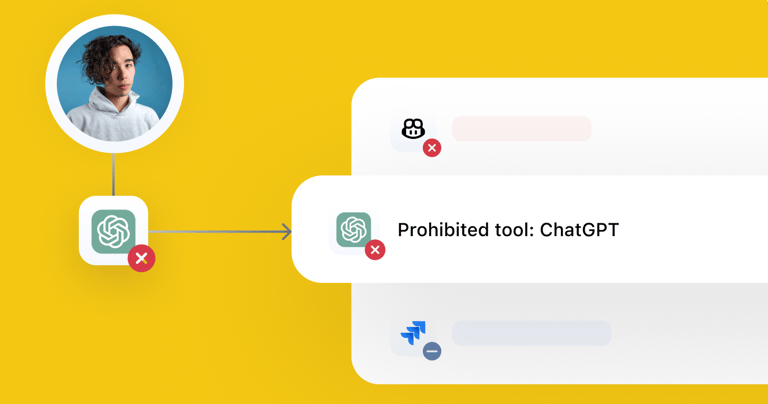AI tools help developers write, refactor, and debug code faster—but they also change how risk enters the SDLC.
When AI-generated code, prompts, and tool usage are not visible or linked to specific developers, security risks introduced during development often go undetected until they surface as incidents or compliance failures.
AI code security ensures AI-assisted development strengthens—rather than undermines—an organization’s overall security posture.
Organizations focused on AI code security must address risks such as:
Insecure AI-Generated Code
AI tools may generate code that does not follow secure coding practices, introducing vulnerabilities such as injection flaws or insecure patterns.AI Code Compliance Gaps
AI-generated code may violate licensing requirements, intellectual property policies, or internal standards when usage is not governed.Data Exposure and Leakage
Sensitive information may be exposed through AI prompts or inadvertently embedded in AI-generated code.Unattributed AI Usage
When AI contributions are not linked to specific developers, accountability and remediation clarity are lost.
The risks associated with generative AI tools are not hypothetical. Public incidents have demonstrated that unmanaged AI usage can lead to security exposure, licensing risk, and data leakage—reinforcing the need for developer-aware governance of AI-assisted development:
Samsung Data Leak via ChatGPT (2023): Samsung employees accidentally leaked sensitive data while using ChatGPT, highlighting the risks of inputting proprietary information into AI tools.
Amazon’s Confidentiality Warning on ChatGPT (2023): Amazon advised employees against sharing sensitive information with AI platforms, emphasizing the potential for unintentional data breaches.
GitHub Copilot and Licensing Risks (2023): Copilot’s generation of code snippets from public repositories, including GPL-licensed code, created legal and security risks for organizations, potentially exposing proprietary projects to vulnerabilities.
Archipelo supports AI code security by making AI-assisted development observable—linking AI tool usage, AI-generated code, and resulting risks to developer identity and actions across the SDLC.
How Archipelo Supports AI Code Security
AI Code Usage & Risk Monitor
Monitor AI tool usage across the SDLC and correlate AI-generated code with security risks and vulnerabilities.Developer Vulnerability Attribution
Trace vulnerabilities introduced through AI-assisted development to the developers and AI agents involved.Automated Developer & CI/CD Tool Governance
Inventory and govern AI tools, IDE extensions, and CI/CD integrations to mitigate shadow AI usage.Developer Security Posture
Generate insights into how AI-assisted development impacts individual and team security posture over time.
AI-assisted development requires the same discipline applied to any other part of the SDLC: visibility, attribution, and governance.
AI code security enables organizations to innovate responsibly—reducing security and compliance risk while maintaining development velocity.
Archipelo helps organizations navigate the complexities of AI in software development, ensuring that AI tools contribute to secure, innovative, and resilient applications. Archipelo delivers developer-level visibility and actionable insights to help organizations reduce AI-related developer risk across the SDLC.
Contact us to learn how Archipelo supports secure and responsible AI-assisted development while aligning with DevSecOps principles.


